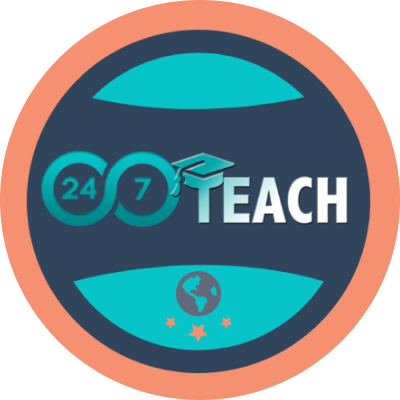Navigating Ivy League Admissions: A Counselor's Perspective
By: Anonymous
Ivy College Admissions Officer
Prefer to listen to this post? Click below.
Steering Through Ivy League Admissions - Insights from an Admissions Counselor:
Hello readers! As an admissions counselor for an Ivy League university, I'm delighted to bring you insider knowledge about our intricate admission process. In recent years, a wealth of information about the seemingly enigmatic Ivy League admission system has emerged. You can better navigate your application journey by understanding the underlying facets of ivy league college admissions.
Ivy League Schools are like Elite Sports Teams:
Envision getting into an Ivy League institution as an academic equivalent of becoming an elite athlete. It demands prioritizing your time and focusing on what's essential—be it your academic performance, SAT preparation, or extracurricular activities. But how do we decipher what is most crucial?
That is simple. A simple tool we call the Common Dataset report.
The Common Dataset:
The Common Data Set (CDS) for College Admissions is a highly useful guide that aids students and their parents navigate the intricate world of college admissions. This comprehensive repository of information for individual schools contains details about admission criteria, financial aid options, graduation rates, and student demographics, among other things. With it, they can make choices that fit their academic goals, financial situation, and personal preferences. This expansive dataset encompasses admissions criteria, financial aid offerings, graduation statistics, demographic details of the student body, and more.
Here, we delve into this concept in more detail and explore its application in the college application process.
To better understand the CDS, imagine it as a factual profile of a university or college. It's as if each institution has been asked consistent questions, allowing prospective students and their parents to compare different schools easily.
A vital part of the CDS is the section on admissions. This portion illuminates the criteria that a particular institution values when selecting its students. For example, it could reveal whether a school emphasizes standardized test scores (like the SAT or ACT), high school GPA, extracurricular activities, or personal essays. Examining this section allows students to tailor their application to highlight the college's priorities.
Similarly, the financial aid section provides valuable data on how much aid the institution typically offers and the forms it comes in, such as grants, scholarships, or work-study opportunities. This can help applicants understand what financial resources may be available, aiding them in their financial planning.
The CDS's demographics and graduation rate sections offer a snapshot of the student population and the school's success rate. Demographics can inform students about the diversity of the campus, with details about gender, ethnicity, geographic origins of students, and more. The graduation rate can signal the effectiveness of the institution in nurturing academic success, which may be an essential factor for some students in making their college decision.
See links to recent Ivy League and Top Selective School Common Dataset Reports:
How to use the Common Dataset Report in College Admissions?
Now, how does one use this in the college application process? The CDS can be a research tool when selecting colleges to apply to. By comparing the CDS of different institutions, students can find colleges that match their academic profile, understand what admission officers prioritize, assess financial aid possibilities, and gauge the likelihood of academic success and personal comfort within the student population.
Therefore, leveraging the CDS as a guide, students can make well-informed decisions and craft compelling applications that align with a college's expectations and priorities.
Once you've located the Common Dataset for your dream school, prepare for an in-depth dive into a hefty pdf file. The golden nugget in this treasure trove of data is the section titled "How admissions make decisions and the relative importance" of factors affecting these decisions. This segment sheds light on numerous academic and non-academic elements impacting admissions, from the importance of interviews to your GPA's relevance.
For instance, the UPenn Common Dataset illustrates the paramount importance of your essay and course rigor. Conversely, your class rank only bears "important" significance. This dataset also underscores the value of "character and personal qualities," which we will explore further in this discussion. An intriguing aspect of UPenn's admissions is their consideration of an applicant's "interest" in the institution. An applicant's proactive engagement with the university, such as networking with a UPenn professor or contributing to research, can give them a distinct edge.
Even schools that do not explicitly state they value your interest level, like Yale or Cornell, can still be swayed by your demonstrated interest. This hands-on knowledge of the Common Dataset can be instrumental in aligning your application strategy with what your top three dream schools deem essential.
Characterizing the Ideal Ivy League Applicant:
The Common Dataset will indicate that while academics hold vital importance, your "personal qualities" allow you to genuinely shine. To navigate this subjective area, let's dive into what Ivy Leagues typically search for in their applicants:
Collaboration and Spirited camaraderie with peers
Selflessness
Leadership with Vision
Humility
Resilience and your ability to problem solve
Judgment
Empathetic Citizenship
Inquisitiveness
These traits underline the Ivy League's quest for well-rounded, principled individuals who can contribute positively to their campuses. So, when it's time to pen your essays or gear up for the interview, make sure to emphasize these qualities. Provide anecdotes and evidence from your past experiences that highlight these aspects of your character.
To paraphrase what many Ivy League schools want to ask - "Why should we pick you, and why us?" Answering these questions adequately in your application and interview is your opportunity to shine.
Demystifying the 'Why Us?' in Admissions:
Now that you understand what these prestigious Ivy League schools seek let's take a closer look at an aspect that often stumps applicants: answering the question, 'Why us?'
Many Ivy League institutions, like UPenn, explicitly state their interest in understanding why you have chosen their university as a prospective student. Others, like Yale or Cornell, might not mention this in their common dataset, but rest assured, your clarity on this topic can give you a distinct advantage.
Begin by conducting comprehensive research about the university - understand its mission, its culture, and the unique offerings of the programs you're interested in. Tailor your application to reflect how these align with your own academic and career aspirations. For example, if you're applying to UPenn, detail your interest in interdisciplinary studies and how their integrated study programs fit your academic pursuits.
An Ivy League’s View on 'Why You?'
Just as Ivy League schools want to understand your unique interest in them, they also want to know what makes you stand out. Why should they choose you amongst thousands of high-achieving applicants? This is where the concept of 'personal qualities' gains momentum.
Ivy League schools highly value the aspects of selflessness, humility, resilience, judgment, citizenship, and spirited camaraderie with peers. To stand out, strive to incorporate evidence of these qualities into every part of your application.
When writing your essay, share anecdotes that demonstrate these attributes. For instance, you might share how your resilience allowed you to overcome a significant academic challenge or how your commitment to citizenship inspired you to start a community service initiative.
In your interviews, reflect on your experiences and how they have shaped these qualities in you. It's about showing, not telling. Use your lived experiences as the foundation to show these qualities in action, thereby crafting a compelling narrative that aligns with the Ivy League ethos.
Navigating Your Ivy League Application with Confidence
The road to Ivy League admission may be daunting, but remember, it's a journey, not a sprint. Every piece of the application, from your grades and SAT scores to your essays and interviews, is a chance to showcase your unique story and how it aligns with the values of your chosen university.
As you move forward, don't forget that these institutions are not just looking for academically excellent students but future leaders, innovators, and contributors to society. This process isn't about fitting into a predefined mold but proving that you can add value to their diverse and vibrant community as a student and alumnus.
In essence, the Ivy League admissions process isn't just about you applying to them—it's also about them envisioning you as part of their community. As you undertake this application journey, remember to embrace the process and let your unique personality and strengths shine through. You are not merely a statistic or a grade point average; you are a potential change-maker and a future Ivy Leaguer in your own right.
In conclusion, as you embark on your application journey to an Ivy League school, remember that it's not solely about academics. It's also about demonstrating qualities that resonate with their ethos, making the case that you fit in their dynamic puzzle. Now that you're equipped with this valuable information proceed with more confidence, curiosity, and a clear vision of what your dream Ivy League school is seeking.
Remember, it's a process of self-discovery, so enjoy the journey and give it your best. After all, you're not merely applying to an Ivy League but preparing for a lifetime of success and enrichment. Happy applying!
Did you know the earlier you start the college application process, the easier it is? If you are ready to start thinking about the college application process, set up a free strategy call with one of our 24/7 College Admissions specialists and learn everything you need to create a successful college application plan for yourself or your teen.












